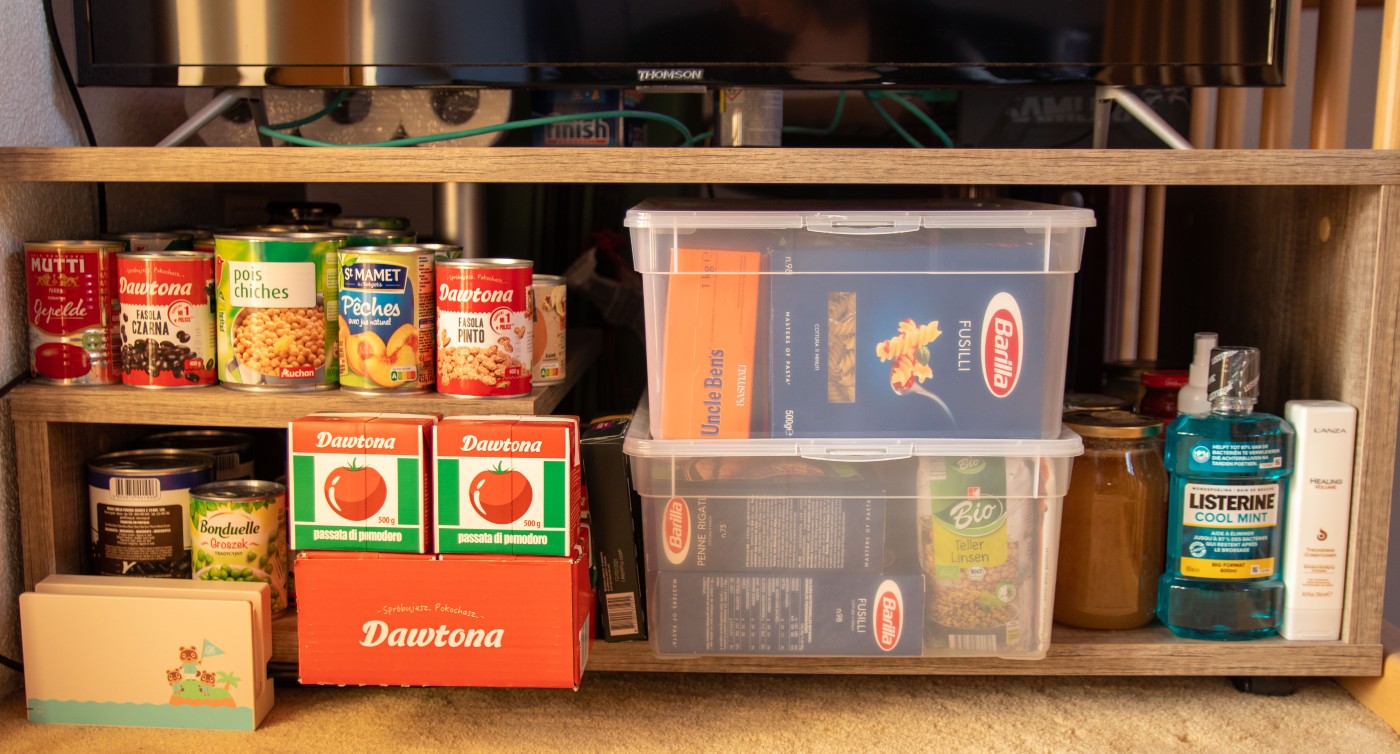The pandemic pet boom
Lockdown loneliness created unprecedented demand for furry friends. Now it can be hard to get one.

A free daily email with the biggest news stories of the day – and the best features from TheWeek.com
You are now subscribed
Your newsletter sign-up was successful
Lockdown loneliness created unprecedented demand for furry friends. Now it can be hard to get one. Here's everything you need to know:
How many pets found homes?
Roughly 13 million U.S. households added a pet last year, as breeders and shelters were overwhelmed by Americans stuck at home and craving companionship. Puppy sales increased by more than 40 percent, and animal adoptions soared at similar rates, including 2 million cats. During lockdowns, dogs and cats provided a play pal for housebound kids, an office mate for at-home workers, and, with dogs, a much-needed excuse to go for a walk. Adoptions and purchases brought the U.S. dog and cat population to 160 million — roughly double what it was a half-century ago. Annual spending on pet food and care, in turn, has reached $103 billion, and it's expected to nearly triple over the next decade, thanks to the explosion of new pet owners. As Morgan Stanley analysts wrote recently, "Welcome to the Petriarchy."
The Week
Escape your echo chamber. Get the facts behind the news, plus analysis from multiple perspectives.

Sign up for The Week's Free Newsletters
From our morning news briefing to a weekly Good News Newsletter, get the best of The Week delivered directly to your inbox.
From our morning news briefing to a weekly Good News Newsletter, get the best of The Week delivered directly to your inbox.
Why are pets in such demand?
They're good company, and easy to love. Studies show that pets lower humans' blood pressure and reduce feelings of anxiety, loneliness, and depression. Humans have lived with dogs for 40,000 years — a relationship that through breeding and natural selection has shaped dogs to be people pleasers. In the modern era, that bond has grown much more intimate, with people giving their dogs and cats clothes, Instagram accounts, and a spot on the bed. Roughly three-quarters of millennials are pet parents — many because they're unmarried and want company or have decided it's too expensive to raise a human child. As demand increases, sterilization has cut down supply: More than 80 percent of dogs and 90 percent of cats are spayed or neutered, compared with roughly 10 percent in the 1970s. With fewer unwanted dogs than ever, competition for one has become ferocious.
How does adoption work?
Today, adopting a dog can feel a bit like gaining admission to an Ivy League university. With demand far outstripping supply, rescue agencies sometimes put prospective dog owners through multiple rounds of interviews, ask for references, and even demand a Zoom tour of an applicant's apartment. Joanna, a Manhattan nurse, told New York magazine that she and her architect husband applied for a dog last year and were grilled about which of them would take the dog if they got divorced, where it would go if they both died of COVID, and whether they could take three days off from work to help the dog acclimate to its new home. "I take care of cancer patients," the nurse told her shelter inquisitor. "She was very unsatisfied with our answer." Kerry McNally, a Ph.D. biologist, tried to adopt a golden retriever in the Boston area, but found that goldens and golden mixes were quickly scooped up at shelters; breeders told her she could join a two-year waiting list. Even the ASPCA's current president, Matthew Bershadker, was twice denied a dog, with a shelter employee telling him, "You work too much."
A free daily email with the biggest news stories of the day – and the best features from TheWeek.com
What about buying?
It can also be difficult, with some breeders advertising multiyear waitlists. Last summer, Sarah Stuart of Cohasset, Ohio, was turned away by 10 dog breeders. Finally, she found a waiting list for $1,900 Welsh terriers. A few weeks later, she and her husband were invited to pay a deposit for a newborn puppy, and the Stuarts waited until 11:59 p.m. to be sure they were first in line. They somehow still missed out, and were told that the next litter of Welsh terrier puppies would cost $2,700 each. It's now common to pay $4,000 for some purebreds, and prices for designer crossbreeds like the coveted Bernedoodle have soared to an average of $5,089. A fully trained Bernedoodle puppy can go for more than $20,000.
Is adoption more popular?
About two-thirds of U.S. pets are adopted. That practice is now widely viewed as more humane than buying from breeders or "puppy mills," high-volume dog factories that compel mother dogs to churn out litter after litter and lock up both parent dogs and pups in filthy cages. There are an estimated 10,000 puppy mills in the U.S., according to the Humane Society. Despite the stigma, buying is often now the only option. A mother identified as Heather told New York magazine about her futile attempts last year to adopt a dog for her family. "People get a little spicy when you say you paid for a dog," Heather said. "You want to scream that you tried your hardest, but it wasn't possible."
Are adoptions working out?
Most pet owners are happy with their companions, despite the chewed sofas, shedding, and barking. As society reopened this year, a feared rush of Americans putting pandemic pets up for adoption didn't come to pass. But if kids return to school and adults to work this fall, there is concern about a looming separation-anxiety crisis. Andrea Tu, a New York veterinarian who prescribes anxiety and depression medication for pets, says both pets and owners are in for a shock. "They can't leave the dog alone for 10 minutes," Tu said, "much less for 10 hours."
A booming industry
Business in the U.S. pet sector has more than doubled in value over the past decade. During the pandemic, Petco's sales rose 11 percent, and the online retailer Chewy grew 47 percent. Surging demand caused a shortage of pet food — a global market expected to hit $118 billion by 2025. With veterinarian visits up 20 percent last year and more than half involving new patients, vets snapped up real estate. Trainers and dog walkers are overrun with clients, and there are endless businesses catering to pampered pets, like Ralph Lauren's line of dog clothing, which includes a $150 cashmere sweater for lap dogs. Numerous industries benefited from lockdowns, such as home improvement and exercise equipment, but the pandemic pet boom will drive spending long after life returns to normal. "There's millions of pets that are basically a furry annuity for the next decade," says Petco CEO Ron Coughlin. "They're going to give us a tailwind for years to come."
This article was first published in the latest issue of The Week magazine. If you want to read more like it, you can try six risk-free issues of the magazine here.
-
 Political cartoons for February 16
Political cartoons for February 16Cartoons Monday’s political cartoons include President's Day, a valentine from the Epstein files, and more
-
 Regent Hong Kong: a tranquil haven with a prime waterfront spot
Regent Hong Kong: a tranquil haven with a prime waterfront spotThe Week Recommends The trendy hotel recently underwent an extensive two-year revamp
-
 The problem with diagnosing profound autism
The problem with diagnosing profound autismThe Explainer Experts are reconsidering the idea of autism as a spectrum, which could impact diagnoses and policy making for the condition
-
 Book reviews: ‘We the People: A History of the U.S. Constitution’ and ‘Will There Ever Be Another You’
Book reviews: ‘We the People: A History of the U.S. Constitution’ and ‘Will There Ever Be Another You’Feature The many attempts to amend the U.S. Constitution and Patricia Lockwood’s struggle with long Covid
-
 Why Irish traditional music is having a moment
Why Irish traditional music is having a momentIn The Spotlight Frustrations with isolation and technology credited for reviving 'auld' trad tunes
-
 A not-so-quiet place: Why is no one using headphones in public anymore?
A not-so-quiet place: Why is no one using headphones in public anymore?Under the Radar People are increasingly comfortable with both speakerphone and watching videos (very) out loud
-
 Gas masks and loo rolls: why 'preppers' are on the rise
Gas masks and loo rolls: why 'preppers' are on the riseUnder The Radar Doomsday community has expanded from 'Rambo wannabes' to 'Tesco regulars'
-
 Breathtaking: the Covid drama that may make you scream
Breathtaking: the Covid drama that may make you screamThe Week Recommends ITV three-parter is a 'tour de force' that exposes 'political complacency'
-
 The lasting changes of the post-pandemic dining era
The lasting changes of the post-pandemic dining eraThe Explainer The newest of new normals
-
 The video game franchises with the best lore
The video game franchises with the best loreThe Week Recommends The developers behind these games used their keen attention to detail and expert storytelling abilities to create entire universes
-
 The buzziest movies from the 2023 Venice Film Festival
The buzziest movies from the 2023 Venice Film FestivalSpeed Read Which would-be Oscar contenders got a boost?